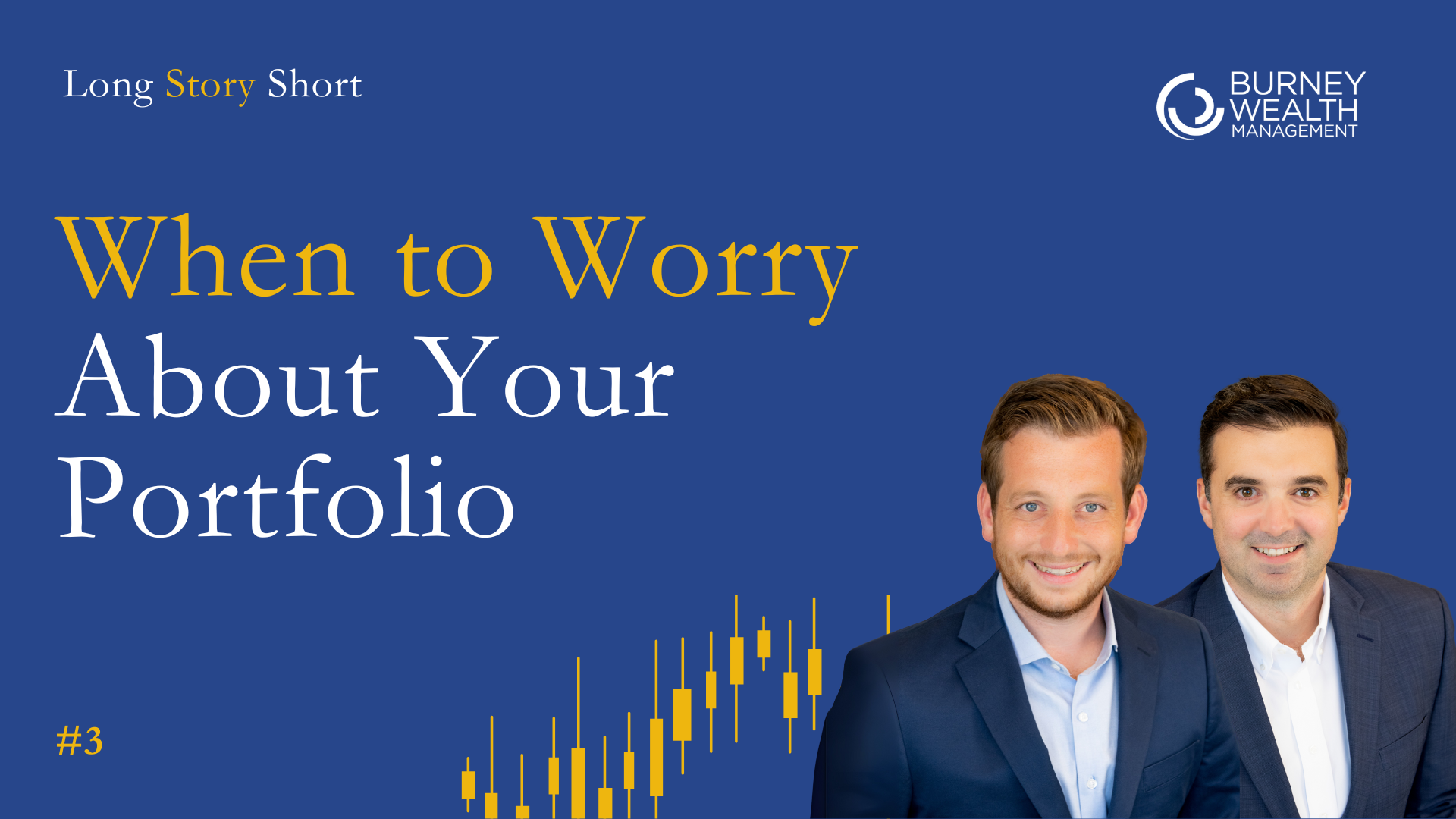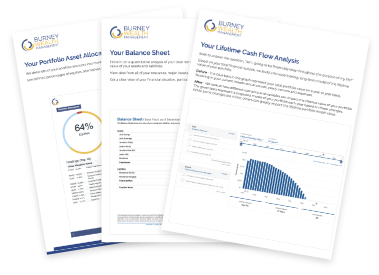The New Tax Bill and Your Investment Risk: What Actually Matters | Long Story Short Podcast Ep 3

Watch or listen to the episode below:
Congress is working on new tax legislation. Markets are hitting new highs. Geopolitical tensions are simmering. Should any of this change how you invest?
In episode 3 of Long Story Short, Andy Pratt and Adam Newman tackle these questions with the practical perspective that comes from daily conversations with investors who are actually living through these headlines.
What's Really in the Tax Bill
The "Big Beautiful Bill" has made its way through both the House and Senate, with some meaningful differences that need to be reconciled. But several key provisions appear likely to survive in some form.
Most importantly for wealth planning, the estate tax exemption is going up, not down. Both versions raise it to $15 million per individual, or $30 million for couples. This gives most families significant breathing room for estate planning.
The current tax rates from the Tax Cuts and Jobs Act will also be extended. There are minor differences in how inflation adjustments get handled, but the rates you see today will likely continue.
For business owners, the 20% pass-through deduction (QBI) looks secure, with the House version potentially increasing it to 23%.
The biggest difference between House and Senate versions involves state and local tax deductions. The House would raise the cap from $10,000 to $40,000 (with income limitations), while the Senate keeps the current $10,000 limit.
The Deficit Question Everyone's Asking
Both versions of the bill raise the debt ceiling by several trillion dollars, which prompts the question Adam hears regularly: When should deficit spending concern investors?
His answer is refreshingly direct: "Anyone that says they know with certainty how our current debt situation is gonna translate into the economy and markets is making a wild guess."
The data supports this view. Our economy is stronger today than it was 15-20 years ago, even as debt levels have climbed consistently. Corporate profits have grown. The dollar remains the world's reserve currency.
"As long as you can print money, you really can't go bankrupt," Andy notes. "The impacts of government deficits would begin to show up in inflation data, and inflation is still coming in below expectations."
For investors, this means deficit fears shouldn't drive allocation decisions, even if the numbers look alarming on paper.
When Headlines Don't Matter (Again)
The latest example of markets ignoring scary news came over the weekend when the U.S. conducted strikes in Iran. Initial futures were red, but by market open, stocks were climbing.
"I got the most hilarious push notification just a few minutes before we started recording," Andy recalls. "The Dow jumps more than 200 points as oil drops following a restrained retaliation by Iran."
The pattern is familiar: Something dramatic happens, markets initially sell off, then recover as investors realize the world hasn't actually ended.
"Stocks rally as this is just a global bull market," Adam quotes from a recent tweet. "Not the title you'll read today, but sums it up more than anything."
The Real Question: When Should You Adjust Risk?
This brings up the more important question: When does it actually make sense to change your portfolio's risk level?
The answer has nothing to do with headlines and everything to do with your personal situation.
Andy breaks it down into three factors: comfort, ability, and goals.
First, how much risk can you stomach emotionally? "Really think about when you are gonna be stressed. What kind of decisions are you gonna make?" Consider your past behavior during market downturns.
Second, what does your financial situation actually require? Based on your nest egg, spending plans, and timeline, what level of risk do you need to take?
Third, what are your objectives? Modest retirement goals might allow for less aggressive investing. Ambitious plans might require more risk.
Notably absent from this list: current market levels, geopolitical events, or deficit concerns.
The Psychology of Panic
There's a scientific reason why market timing fails so often. Psychologists have found that people literally score lower on IQ tests when they're stressed versus when they're calm.
"You are actually dumber when you're stressed out," Andy explains. "It's not because you're actually dumber, it's because the stress response in your body is keeping your brain from thinking the same way."
This is why the most important investment decisions should be made from a position of strength, during calm market periods, not during panics.
"The worst scenario is being that person calling your advisor in February 2009, the month before the market bottom, saying 'I can't take this anymore,'" Adam notes.
What Actually Matters
While headlines grab attention, the fundamental drivers of long-term returns remain unchanged. Companies continue growing profits. The economy adapts to challenges. Markets look beyond temporary disruptions.
The new tax bill will likely provide some certainty for planning purposes. Deficit spending will continue generating scary headlines. Geopolitical tensions will ebb and flow.
None of this changes the basic math of long-term investing: Own productive assets, diversify appropriately for your situation, and avoid making emotional decisions during stressful periods.
Focus on what you can control, and let the markets handle the rest.
Listen to the full conversation on Long Story Short:
The Burney Company is an SEC-registered investment adviser. Burney Wealth Management is a division of the Burney Company. Registration with the SEC or any state securities authority does not imply that Burney Company or any of its principals or employees possesses a particular level of skill or training in the investment advisory business or any other business. Burney Company does not provide legal, tax, or accounting advice, but offers it through third parties. Before making any financial decisions, clients should consult their legal and/or tax advisors.



